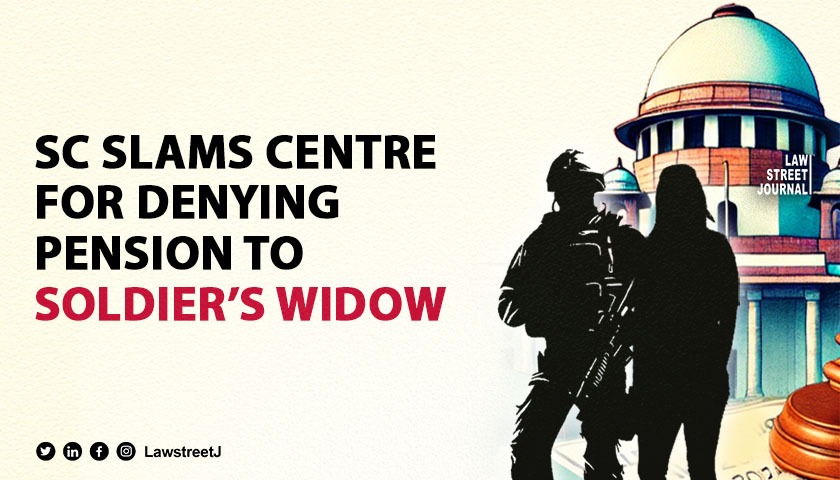NEW DELHI: The Supreme Court on Tuesday pulled up the Union government for dragging a widow of a soldier, who died at the line of control in J&K due to extreme climatic conditions, to the court to deny her liberalised family pension, saying the decision making authority ought to have been sympathetic to her.
A bench of Justices Abhay S Oka and Augustine George Masih slapped Rs 50,000 cost on the Centre for challenging an Armed Forces Tribunal order, which granted a liberalised pension to the widow of a soldier who died during a counter-terrorism patrol in 'Operation Rakshak'.
Supreme Court Criticizes Centre for Denying Pension to Soldier’s Widow
"In our view, in a case like this, the respondent ought not to have been dragged to this court, and the decision-making authority of the appellants ought to have been sympathetic to the widow of a deceased soldier who died in harness,” the bench said..
The bench thus imposed Rs 50,000 cost on Saroj Devi, wife of deceased Naik Inderjeet Singh, payable to the respondent within a period of two months.
Singh, suffered a cardiac arrest while on patrol in extreme weather conditions in January 2013. Initially, his death was classified as a "battle casualty" but later as a "physical casualty" attributable to military service.
₹50K Cost Imposed on Centre for Challenging Armed Forces Tribunal Order
Dismissing the Union government's appeal, the bench found the death in the case can be attributed to illness caused by extreme climatic conditions.
Hence, as per clause 1 (g) of Appendix ‘A’ of the Army Order 1 of 2003, the case will fall in ‘Battle Casualties’, it said.
The court noted that the deceased was operating near LC in extreme climatic conditions. He was part of Operation Rakshak and was on duty near LC.
"The casualty caused by illness due to climatic conditions is covered by clause 1 (g). In this case, the respondent’s husband was a victim of illness caused by extreme climatic conditions. Therefore, the case of the deceased will fall in the category of ‘Battle Casualties’," the bench held.
The court directed the Union government to implement the directions issued by the Tribunal to disburse money to the respondent widow under liberalised pension scheme within a maximum period of three months.















